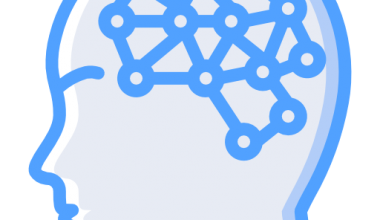DABUS is a new type of AI that paves the way for smarter machines. Nothing new there – but this machine-learning system is different. DABUS, short for “device for the autonomous bootstrapping of unified Sentience”, is deliberately created to be mentally unstable.
Since the 90s, computer scientist Stephen Thaler has been injecting noise into a special neural network to generate novel ideas. Thaler, CEO of Missouri-based Imagination Engines, calls this module an Imagitron. The stream of creativity is assessed by a second network called a Perceptron, which provides feedback to improve ideas. This AI approach of neural networks playing off each other has been adopted by Facebook, Google and others – under the name “generative adversarial networks” – as a method of creating images that look authentic to human observers.
Now Thaler has introduced a technique to assess ideas according to how they resonate with existing knowledge – the AI equivalent of art or music that triggers happy or unhappy associations. Another process boosts the slow and tentative rhythm characteristic of creative activity in a neural network. The system swings between extremes of unimaginative plodding and novel thinking. It can also exceed the bounds of sanity.
“At one end, we see all the characteristic symptoms of mental illness, hallucinations, attention deficit and mania,” Thaler says. “At the other, we have reduced cognitive flow and depression.” This process is illustrated by DABUS’s artistic output, which combines and mutates images in a progressively more surreal stream of consciousness.
Thaler is also using the technology for stock-market prediction and to help autonomous robots find creative ways of tackling obstacles. He believes that with larger networks the approach will offer human-like problem-solving and genius-level ideas, impacting on scientific discovery, economics and more. But developers will need to restrict creativity to sensible limits. “The AI systems of the future will have their bouts of mental illness,” Thaler says. “Especially if they aspire to create more than what they know.”
Read the source article at Wired.
Source: AI Trends






